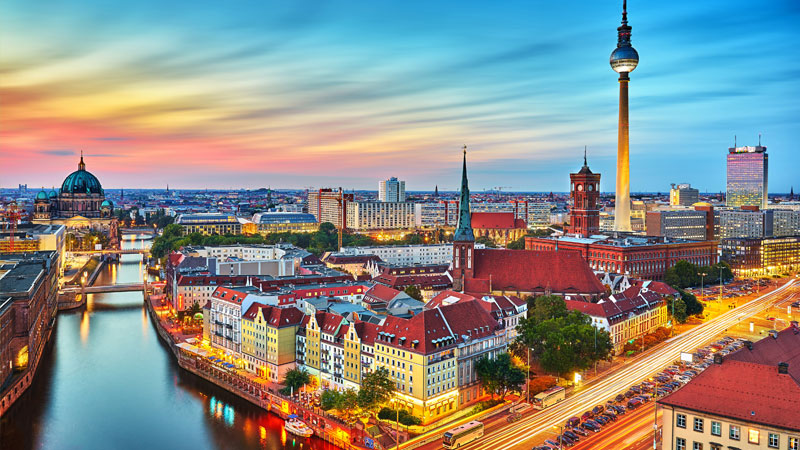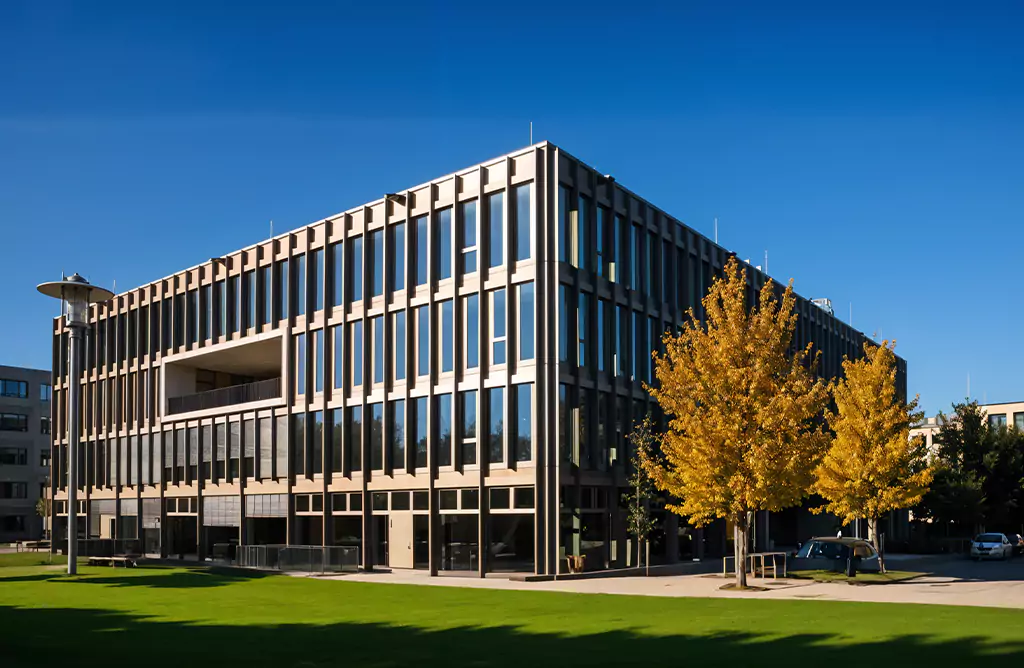Free University of Berlin: A Hub of Innovation, Excellence, and Global Learning
History and Origins of the Free University of Berlin
The Free University of Berlin, or Freie Universität Berlin in German, was established in 1948 in the aftermath of World War II, during the Cold War era. It was founded with the goal of offering a free and democratic alternative to the previously existing universities in Berlin that were under Soviet control. Its creation was heavily supported by American allies, who recognized the need for academic freedom in West Berlin. Unlike traditional German universities of the time, which had deep-rooted traditions often tied to conservative ideologies, the Free University was envisioned as a modern institution built on values such as freedom of speech, independent thought, and international collaboration. if you want change your life so click here
From its very beginning, the university positioned itself as a beacon of academic liberty, attracting students and faculty who sought a more progressive environment. The name “Free University” wasn’t just symbolic—it represented a break from authoritarian influence in academia. Over the decades, the university has grown from a politically significant foundation to a globally respected research institution, playing a major role in Germany’s intellectual and scientific advancement.
At the time, the prestigious Humboldt University, located in East Berlin, had fallen under the direct influence of Soviet ideologies. Faculty and students faced increasing censorship, political pressure, and even expulsion or arrest if they opposed communist doctrine. This growing repression deeply alarmed many in the academic community. In response, a group of courageous students, professors, and intellectuals took a stand. With strong support from American forces occupying the western sector of the city—particularly the U.S. military government and the Berlin Command—they began advocating for a new, autonomous institution that would guarantee freedom of thought, academic integrity, and democratic values.

This movement culminated in the founding of the Free University of Berlin in the leafy district of Dahlem, a part of West Berlin historically known for its research institutions. The university’s very name was both literal and symbolic: “Free” signified a break from ideological control and a commitment to liberty in scholarship. Unlike many traditional German universities of the time, which were often steeped in rigid hierarchies and conservative traditions, the Free University embraced a forward-thinking philosophy. It welcomed open discourse, international collaboration, and intellectual independence. From the start, it stood as a powerful statement against oppression and a beacon of hope for post-war recovery and democratic rebirth—not just for Berlin, but for the academic world as a whole.
Academic Excellence and Programs Offered

Today, the Free University of Berlin is internationally renowned for its academic excellence across a diverse range of disciplines. It consistently ranks among the top universities in Germany and is particularly recognized for its strengths in the humanities, social sciences, natural sciences, and life sciences. One of the standout aspects of the Free University is its interdisciplinary approach, allowing students to cross traditional academic boundaries and explore new ideas through integrated programs.
The university offers a wide selection of undergraduate, graduate, and doctoral programs. From Bachelor of Arts degrees in Political Science and History to advanced PhDs in Molecular Biology and Cognitive Neuroscience, students have access to a world-class curriculum. English-taught programs are also available, especially at the graduate level, making it an attractive choice for international students. Programs such as the Master’s in Global History, Computational Sciences, or Public Policy are particularly popular with a global audience. With over 150 degree programs, the university offers a learning path for nearly every academic interest.
World-Class Research and Innovation

Research is a cornerstone of the Free University of Berlin’s mission. As one of Germany’s “Universities of Excellence,” a status awarded through a competitive national initiative, the institution receives substantial funding to support high-level academic research. This recognition has enabled the university to become a hub for groundbreaking studies in disciplines ranging from Earth sciences and biodiversity to political theory and digital humanities.
The university hosts several research clusters and centers of excellence that foster collaboration between scholars from Germany and around the world. Examples include the Center for Area Studies, which focuses on regional and global transformations, and the Berlin Institute of Health, which drives forward medical innovation in cooperation with the Charité medical university. Additionally, students often have the chance to engage in research projects as early as their undergraduate years, a rare feature in many European universities. This hands-on experience nurtures critical thinking and equips students for careers in academia, industry, or public policy.
Campus and Student Life

The main campus of the Free University is located in the leafy, residential district of Dahlem, in the southwest of Berlin. Unlike many urban campuses that feel crowded or impersonal, the Dahlem campus offers a peaceful, park-like environment ideal for studying, socializing, and reflecting. The university’s facilities blend modern architecture with historical buildings, creating a unique and inviting atmosphere. Students have access to state-of-the-art lecture halls, science labs, computer centers, and libraries, including the striking Philological Library, often referred to as “The Brain” due to its futuristic design.
Student life at the Free University is vibrant and diverse. With over 30,000 students from more than 130 countries, the campus community is truly international. Various student organizations, cultural groups, and academic clubs help foster an inclusive and dynamic environment. Whether you’re into debating, filmmaking, robotics, or volunteering, there’s a space for you to connect with like-minded peers. Moreover, the university encourages civic engagement and sustainability, supporting initiatives like urban gardening, environmental activism, and diversity programs.
International Partnerships and Global Reach

One of the strongest features of the Free University of Berlin is its global orientation. The university maintains academic partnerships with over 400 institutions across the globe, including leading universities in North America, Asia, Africa, and Latin America. This vast network enables a wide array of exchange programs, collaborative research, and dual-degree options.
For students, this means countless opportunities to study abroad or engage in international internships during their academic journey. Programs like Erasmus+ and direct partnerships with institutions like UC Berkeley, Sciences Po, and the University of Cape Town make it possible for students to gain a global perspective without disrupting their study timeline. The university also runs liaison offices in strategic locations including New York, Moscow, Beijing, and Cairo, which help promote international cooperation and recruit top talent from around the world.
Additionally, many courses are offered in English, and the university actively supports foreign students through orientation programs, language courses, and mentorship initiatives. This global mindset not only enriches the learning environment but also prepares students for careers in an increasingly interconnected world.
Admissions Process and Tuition Fees

Applying to the Free University of Berlin is a relatively straightforward process, but it does require careful attention to deadlines and specific requirements, especially for international applicants. Undergraduate programs generally require a recognized secondary school certificate equivalent to the German “Abitur.” For graduate studies, applicants need a relevant bachelor’s degree, and often, proficiency in German or English, depending on the language of instruction.
One of the most appealing aspects of studying in Germany is the low cost of tuition. Like most public universities in the country, the Free University of Berlin does not charge tuition fees for undergraduate students, including those from outside the EU. Students are only responsible for a modest semester contribution, which covers administrative costs and includes a transportation pass for Berlin’s public transit system. Graduate programs are also free or low-cost, especially when compared to tuition rates in the U.S. or U.K. Some specialized master’s programs may have fees, but they are generally much lower than private or international institutions.
Support Services and Student Resources

The Free University of Berlin offers a comprehensive range of support services to help students succeed academically, socially, and personally. The International Office is a key resource for incoming students, offering guidance on visas, housing, enrollment, and navigating life in Berlin. Academic advising is also readily available, with trained counselors helping students choose courses, plan their study paths, and adjust to university expectations.
For those who need additional academic help, writing centers, tutoring programs, and language workshops are available across departments. Mental health and well-being are also priorities, with counseling services, mindfulness sessions, and peer support groups provided at no extra cost. Career support is another major benefit. The Career Service offers workshops, job fairs, one-on-one coaching, and internship placements to help students transition into the job market.
Students with disabilities or special needs are supported through dedicated offices that ensure equal access to all learning environments. The university also promotes gender equality and diversity through institutional programs that address discrimination, inclusion, and social justice.
Berlin: A City of Culture, History, and Opportunity

Studying at the Free University also means living in Berlin—one of the most vibrant and exciting cities in the world. The German capital is famous for its unique blend of history, art, politics, and subcultures. From visiting the Berlin Wall and the Brandenburg Gate to experiencing cutting-edge music scenes and world-class museums, the city offers endless inspiration for curious minds.
Berlin is also surprisingly affordable compared to other European capitals. With reasonably priced public transport, student housing, and food, it’s possible to enjoy a high quality of life on a student budget. Plus, the city’s international population means that English is widely spoken, and finding part-time jobs, internships, or networking opportunities is easier than ever.
For students pursuing degrees in media, international relations, engineering, art, or science, Berlin’s job market is robust and filled with potential. The city is a growing tech and startup hub, and graduates from the Free University often go on to work in think tanks, NGOs, international organizations, or multinational companies based in Berlin.
FAQs: Everything You Need to Know About Free University of Berlin
Is the Free University of Berlin really free for international students?
Yes, tuition is free for both German and international undergraduate students. However, all students must pay a small semester fee (around €300–€350), which includes public transportation and administrative costs.
What language are the courses taught in?
Most undergraduate courses are taught in German, but several master’s and PhD programs are available in English. Language requirements are clearly stated in each program’s admission criteria.
How competitive is admission to the Free University of Berlin?
While some programs are open-admission, others, especially in areas like psychology, medicine, and political science, are highly competitive. Meeting the academic requirements and submitting a strong application increases your chances significantly.
Can I study abroad while enrolled at the Free University?
Absolutely. The university encourages international exchanges and has partnerships with hundreds of institutions worldwide. Students can spend a semester or year abroad through programs like Erasmus+, direct exchanges, or summer schools.
Does the university offer student housing?
While the Free University doesn’t own dorms, it collaborates with housing services and provides guidance on finding student apartments, shared flats, or rooms in residence halls across Berlin.
Are there scholarships available?
Yes. The Free University and external organizations offer scholarships for both domestic and international students based on merit, need, or field of study. Popular options include DAAD scholarships and the Deutschlandstipendium.
Is Berlin a safe city for students?
Berlin is generally safe, especially in student-friendly areas like Dahlem, Kreuzberg, and Neukölln. Like any major city, basic precautions should be taken, but students report feeling secure and welcomed.
Conclusion: Why the Free University of Berlin Stands Out
The Free University of Berlin is more than just a place to earn a degree—it’s a gateway to academic freedom, global exploration, and personal growth. With its world-class research, diverse programs, and commitment to international collaboration, it provides an unmatched learning environment for students from all walks of life. Whether you’re drawn by its historical roots, its strong academic reputation, or the dynamic energy of Berlin itself, choosing the Free University could be one of the most transformative decisions you make in your educational journey.
It combines tradition with progress, theory with practice, and local impact with global reach. For those looking to challenge themselves, contribute meaningfully to society, and thrive in a city that never stops evolving, the Free University of Berlin offers everything and more.
